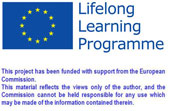
Webmaster: Pinzani.it
GUIDE TO THE LINGUISTIC ANALYSIS OF THE TRANSLATION OF J.B. SAY’S WORKS: THE CREATION OF A VOCABULARY IN POLITICAL ECONOMY IN SPANISH
J.C. DE HOYOS – J. SAN JULIÁN
UNIVERSITÉ LYON 2 – UNIVERSITY OF BARCELONA
LYON, FRANCE; BARCELONA, SPAIN
[email protected], [email protected]
INTRODUCTION
The figure of J.B. Say is extremely important in the framework of the diffusion of political economy at the beginning of the 19th century in continental Europe. Say became the most praised economist in his epoch in France, but besides, he has been widely acknowledged for his role in the diffusion and popularisation of the ideas of Adam Smith, especially in Southern Europe. The pedagogical aim of his writings was a key feature in his success as an economist. One of his main concerns in this regard, was the creation of a specific language for the new science of political economy, as he deemed language an essential trait of a sound science. He was consequently extremely careful in the use of language, searching to define precisely the terms he was employing conscious of the need of an accurate terminology for the rising field of knowledge of political economy. Spanish translators of Say’s works also put attention to this concern for language, and it can be said that these translations largely contributed to the creation of the economic language in Spanish. This reader’s guide focuses on the Spanish translation of J.B. Say’s Épitomé des principes fondamentaux de l'économie politique, a small dictionary added in the second edition of his Traité d’économie politique, whose terms were adopted in Spain as the language of political economy in the 19th century.


NEWS
The international conference entitled Translations of Economic Texts into and from European Languages, organized in the framework of the EE-T project, was held at the University of Pisa (Italy) on 11 to 13 September. The aim of the conference was to present the results of researches carried out throughout Europe on the international circulation of economic ideas through translations and adaptations of economic texts. The three days event was attended by around 100 participants representing: lecturers, researchers, students in the field of history of economic thought. More information is available in the Events section